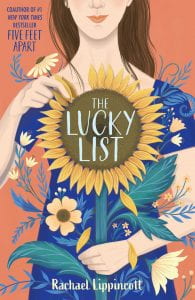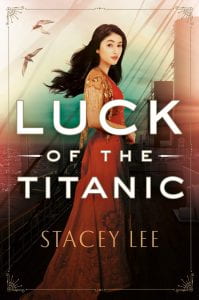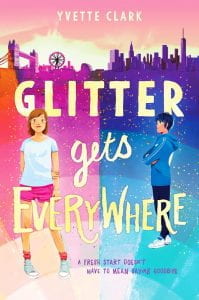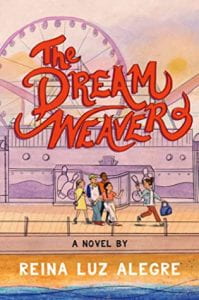 Schmidt, Gary D. The Labors of Hercules Beal. Clarion Books, 2023. 978-0-358-65963-1. $19.99. 347 p. Grades 5-8.
Schmidt, Gary D. The Labors of Hercules Beal. Clarion Books, 2023. 978-0-358-65963-1. $19.99. 347 p. Grades 5-8.
Hercules Beal is 12 years old and entering seventh grade. Hercules loves his small town of Truro on Cape Cod. Every morning he rises before dawn to walk to the dunes to watch the sun rise. As the first light of day emerges, Hercules whispers his love to his parents who died a year ago in a horrific car crash. Hercules lives with his older brother Achilles, in a home built by his great-grandparents. Achilles had been pursuing a career in journalism when the accident changed the Beal family forever. He returned to Truro to care for Hercules and run the family business. Hercules was the smallest kid in his sixth grade class and is full of all of the trepidation that goes with entering middle school. He is hoping that he will hit the much anticipated Beal growth-spurt soon so that he can avoid bullying in middle school. At the last minute Achilles announces that Hercules will not be attending the local public school, but will begin middle school at The Cape Cod Academy for Environmental Sciences. Disappointed he won’t be attending school with his best friend Elly, Hercules is nervous to meet his new homeroom teacher who introduces himself in a terse and unfriendly welcome letter. Lieutenant Colonel Hupfer is a retired Marine. He is a no-nonsense teacher with exceedingly high expectations. The first assignment he gives is a year-long project based on ancient texts. Each student is challenged with an individual project that would make a college student sweat. Hercules Beal is assigned to examine his namesake’s 12 labors from ancient Greek mythology and to reflect on each labor as it pertains to his own life and the lessons he learns in 7th grade. Hercules (the kid) is somewhat perplexed as he dives into researching Hercules (the myth) and his journey of self-discovery. In the ensuing school year, Hercules (the kid) is met with many challenges of his own. Achilles and Hercules are so busy trying to survive, they have not yet learned to live with their immense grief. As he contemplates his classical namesake, Hercules (the kid) begins a journey of self-discovery that takes him to the very depths of his own version of hell. With the love of his brother, his friends, his teachers, his community, and the Greek mythological stories, Hercules (the kid) finds himself.
THOUGHTS: One of the best books I have read this year. This book is very much in the style of Gary D. Schmidt’s 2008 Newbery Honor, The Wednesday Wars. Fans of that story will be thrilled to delve into another coming of age journey that is not ever simply what it appears to be on the surface. Lieutenant Colonel Hupfer is a complicated character with many demons of his own to overcome. The community of classmates, neighbors, and middle school faculty is wonderfully rendered. A stunning story about moving forward with grief. Many applications for further inquiry into classical mythology.
Realistic Fiction
Twelve-year-old Hercules Beal is entering seventh grade with a lot of baggage. His parents, owners of Beal Brothers Farm and Nursery, have died in a tragic car accident while on a rushed delivery run. Now his twenty-something brother Achilles has put his travels as a writer for National Geographic on hold to take care of Hercules and run the family business on the coast of Cape Cod. Hercules is not looking forward to starting seventh grade at the Cape Cod Academy for Environmental Science and would prefer to start middle school with his neighbor and lifelong best friend, Elly Rigby. He winds up in the homeroom of retired marine, Lieutenant Colonel Daniel Hupfer (Holling Hoodhood’s best buddy from Gary Schmidt’s The Wednesday Wars), who distributes a yearlong assignment on the first days of school: to relate Greek mythology to the students’ own lives. Of course, because of his moniker, Hercules receives The Labors of Hercules. Thus begins a coming-of-age tale that integrates mythology into the seemingly mundane goings-on of a close-knit New England community and the silently grieving siblings. Hercules Beal speaks to the reader in a conversational tone, relating his struggles to complete each of the twelve tasks throughout the school year. Circumstances determine how the labors are accomplished: the town is plagued by a pack of feral cats; the Cape Cod Academy for Environmental Science is condemned after a severe nor’easter; Hercules’s dog gets hurt and needs assistance during a blizzard, and so on. After each “labor,” Hercules must write a reflective essay. Each is brief yet meaningful and hopefully cathartic; following each essay is Lieutenant Colonel Hupfer’s professional but sensitive response. As Hercules navigates this critical year coping with his guilt and grief, neighbors, friends, and teachers support him, especially when the unthinkable happens. By story’s end, a more secure Hercules recognizes he is not left to carry his burdens alone. And the reader is left with a host of memorable characters and a renewed conviction in the importance of helping each other. Most characters appear to be white; some have Asian-sounding names.
THOUGHTS: This book can be used well in several ways: character study–the development and arc are easy to trace; for a similar assignment involving myths; comparative stories, classic to modern; writing tips from the essays; minimally, plant identification and environmental impact; relationship building; social and emotional health discussions. I don’t know if this is the best book I read all summer, but it is the one that touched my heart the most. Although set in the present day (cell phones, laptops, etc.), it is not slick or trendy. Typical Gary Schmidt, he alludes to the hard stuff–the pain, the anxiety–with a few phrases and ellipsis rather than a lengthy description, but the meaning is taken. Schmidt brings in Hupfer and his now-wife, Mai Thi, from The Wednesday Wars, and makes a reference to Doug Sweiteck (The Wednesday Wars and Okay for Now) and the Joe Pepitone jacket, which may lead students to seek out these titles if they cotton to this book. I say this because The Labors of Hercules Beal may appeal only to readers who are into reading or interested in mythology (though Hercules Beal gives them a very different take on the mythical Hercules) or like books that challenge their thinking or make them feel deeply. Not all middle schoolers are open to the raw but basic feelings this book touches on, but I wish they were. Also, there are some possible glitches. First, the diversity aspect and the lack of differences. The main characters, Hercules, Achilles, Viola (Achilles’s girlfriend), Hupfer, Elly are white, but some of the other characters are not described. The book doesn’t go into gender identity or people with disabilities. Aside from this, the story projects an authentic picture of flawed people–the surprises behind a stern facade, the generous spirit expressed in little kindnesses, the courage that bursts through in time of need, the ability to get mad and get over it. If this sounds too saccharine, it is not. Mean things are said, punches are hurled, students slack off and act goofy. In a review of Okay for Now, Jonathan Hunt who writes the column, “Heavy Medal,” praised Schmidt’s book, but pointed out the parts where the reader had to exercise “suspension of disbelief.” So next, these questions arise: why would anyone leave a twelve-year-old essentially in charge of a business for two weeks? Why aren’t Hercules and his brother in grief therapy? How does one get any seventh grader to work that hard? Maybe I am under the Gary D. Schmidt spell for even with these criticisms, I still think this book is a winner.
Realistic Fiction




